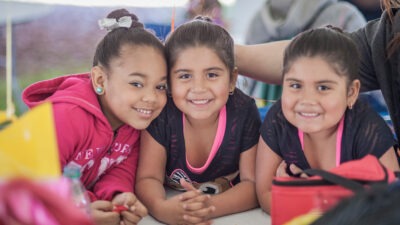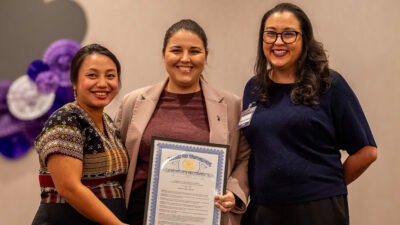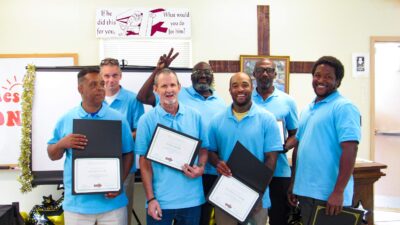NEW ORLEANS
New Year’s celebrations on New Orleans’ Bourbon Street turned tragic this year with an attack that killed 14 people and injured dozens more. WKKF grantees like the Greater New Orleans Foundation established support funds, and residents lined up to donate blood, reflecting the city’s strength and compassion in the most challenging of times. Learn how to help here.
IMPACT INVESTING
WKKF grantee Rende Progress Capital (RPC) is a Grand Rapids-based organization dedicated to closing the racial wealth gap by providing loans and investment capital to entrepreneurs who face barriers to traditional financing. Founded and managed by people of color and WKKF fellows, RPC not only supports economic development but also fosters racial equity by creating true partnerships with businesses, helping entrepreneurs achieve sustainable growth and success.
COMMUNITY ENGAGEMENT
Brilliant Cities, a Detroit-based WKKF grantee, is expanding to Philadelphia in 2025 to support children and families of color through its “neighborhood hubs.” The hubs provide young children and families with access to free early childhood education, tutoring, meals and health services. With plans to establish hubs in underserved neighborhoods like Belmont and Huntington Park, the organization integrates community-driven programs with schools, addressing gaps in education and family support. Brilliant Cities’ proven model, which has helped thousands of families in Detroit, focuses on local partnerships, hiring and holistic services to foster stronger, more engaged communities.
FOOD SYSTEMS
A recent story on the McKnight Foundation website highlights how WKKF grantee Hmong American Farmers Association (HAFA) is leading climate-smart agriculture initiatives while addressing systemic inequities in farming. The story showcases how HAFA’s 18-family farm in Minnesota serves as an educational and research hub for regenerative agriculture practices like crop rotation, cover cropping and soil amendments. The farm grows 160 crops, many central to Hmong culture, while building generational wealth and climate resilience. Although Hmong farmers lead the Twin Cities’ local food economy, systemic inequities persist when it comes to access to resources and funding for farmers of color. HAFA’s approach of combining traditional knowledge with current practices demonstrates how supporting historically marginalized farmers strengthens community resilience, creates generational wealth and advances climate solutions.







Comments